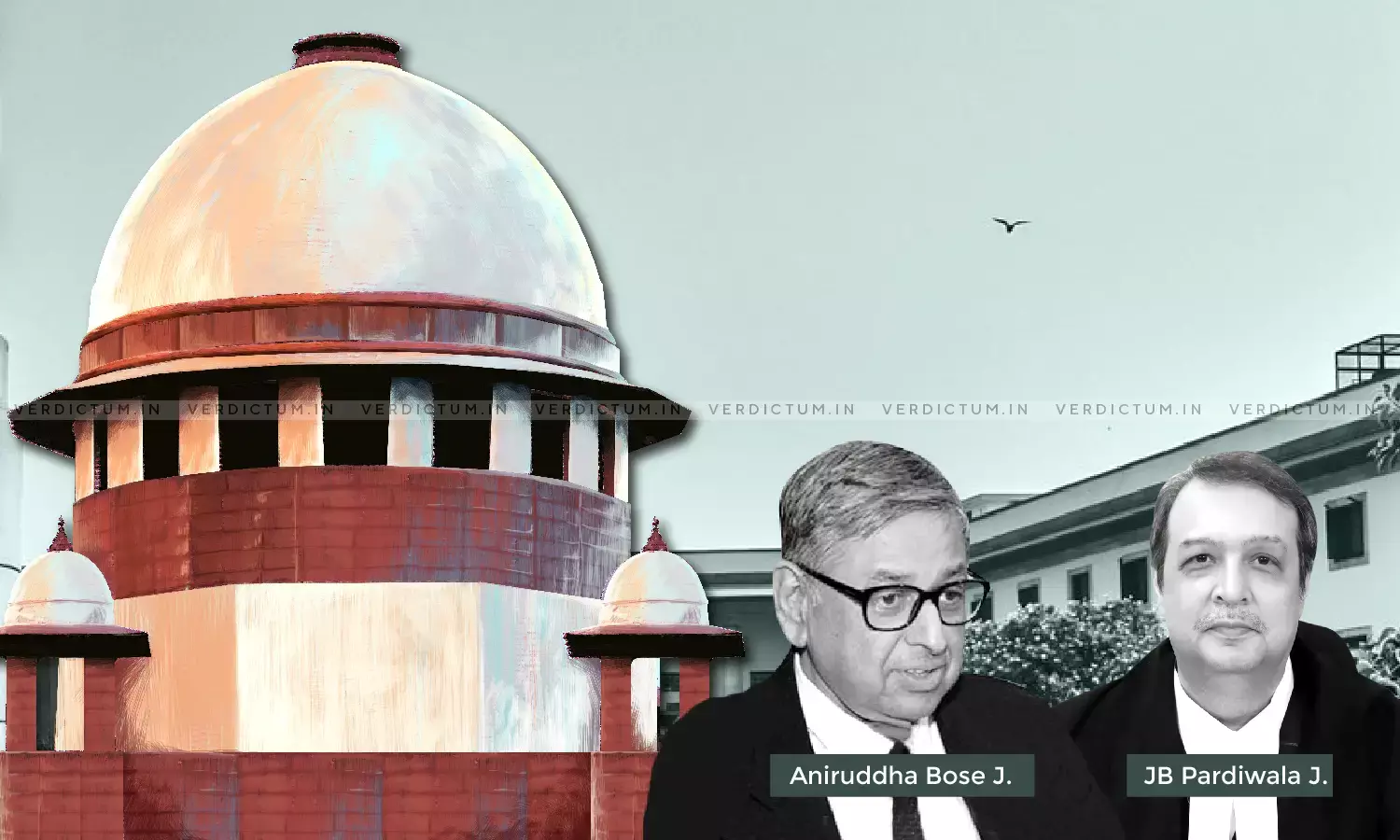Length Of Delay Relevant Factor For Considering Delay Condonation Plea; Rendering Substantial Justice Is Not To Cause Prejudice To Opposite Party: SC

The Supreme Court observed that the length of the delay is a relevant factor while considering delay condonation applications.
The court observed that delay should not be excused as a matter of generosity and rendering substantial justice is not to cause prejudice to the opposite party. It added that the rules of limitation were based on the principles of sound public policy and principles of equity and that the question of limitation was “not merely a technical consideration.”
In this case, the Court stated that it would be a mockery of justice if it would condone the delay of 12 years and 158 days and once again ask a private party to undergo the “rigmarole” of the legal proceedings.
Justice Aniruddha Bose and Justice J.B. Pardiwala observed, “Once it is held that a party has lost his right to have the matter considered on merits because of his own inaction for a long, it cannot be presumed to be non-deliberate delay and in such circumstances of the case, he cannot be heard to plead that the substantial justice deserves to be preferred as against the technical considerations.”
AG R. Venkataramani and Sr. Advocate R. Balasubramanian represented the appellants, while Sr. Advocate Sudhanshu S. Chaudhari appeared for the respondent.
The Centre (appellant) sought condonation of delay of 12 years and 158 days in filing an application for restoration of a writ petition. The Bombay High Court declined to condone the delay invoking its supervisory jurisdiction under Article 227 of the Constitution.
The respondent had filed a civil suit in 1981 for possession and arrears of rent with respect to the leased suit property. The suit was allowed and the respondent was entitled to possession of the suit premises. The appellants then challenged the said decree before the first appellate court and the same was dismissed. The suit came to be dismissed for non-prosecution in 2006.
The Attorney General on behalf of the Centre argued that the respondent in his capacity as a private party should not be permitted to deprive the Government of its land after having admitted that only the super structure belonged to him, and not the land.
On the aspect of the delay of 12 years and 158 days in filing the restoration application before the High Court, the Supreme Court stated that “the learned Attorney General has no explanation worth to offer.”
The Bench had made it clear that they were not going to look into the merits of the matter as long as they were not convinced that sufficient cause had been made out for the condonation of such a long and inordinate delay.
The Court reiterated that “it has been said that delay should not be excused as a matter of generosity. Rendering substantial justice is not to cause prejudice to the opposite party.”
“While considering the plea for condonation of delay, the court must not start with the merits of the main matter. The court owes a duty to first ascertain the bona fides of the explanation offered by the party seeking condonation. It is only if the sufficient cause assigned by the litigant and the opposition of the other side is equally balanced that the court may bring into aid the merits of the matter for the purpose of condoning the delay,” the Court observed.
Consequently, the Court held that the High Court did not commit an error of law in passing the impugned order as it was done while exercising the supervisory jurisdiction under Article 227 of the Constitution.
Accordingly, the Supreme Court dismissed the appeal.
Cause Title: Union of India & Anr. v. Jahangir Byramji Jeejeebhoy (D) (Neutral Citation: 2024 INSC 262)
Appearance:
Appellants: AG R. Venkataramani; Sr. Advocate R. Balasubramanian; ASG Vikramjit Banerjee; AOR Arvind Kumar Sharma; Advocates Abhishek Panday and Chitvan Singhal
Respondent: Sr. Advocate Sudhanshu S. Chaudhari; AOR Supreeta Sharanagouda; Advocates Charushila Sawant, Sharanagouda Patil, M. Veeraragavan, Gautami Yadav, Pranjal Chapalgaonkar and Arvind Shah

